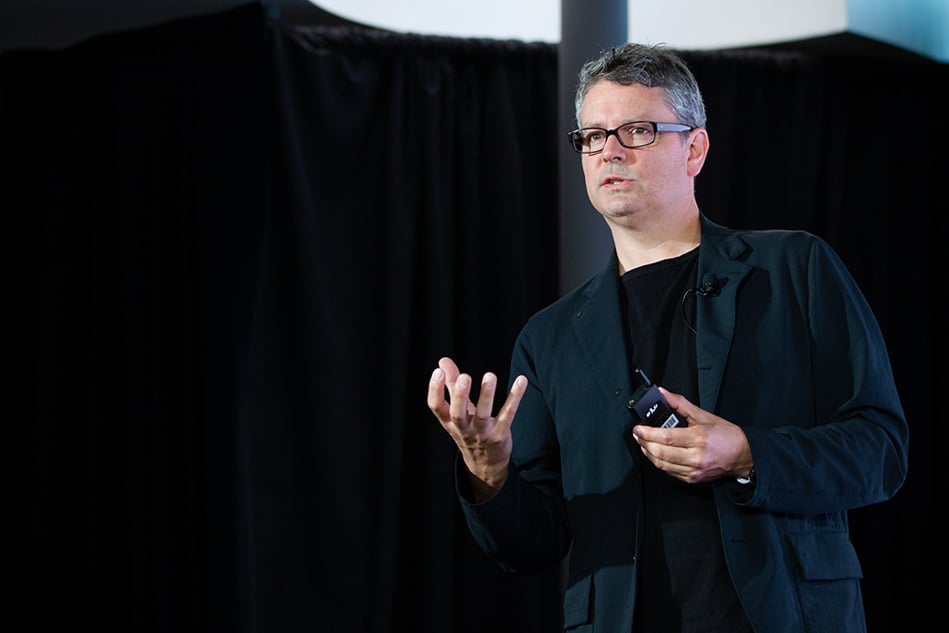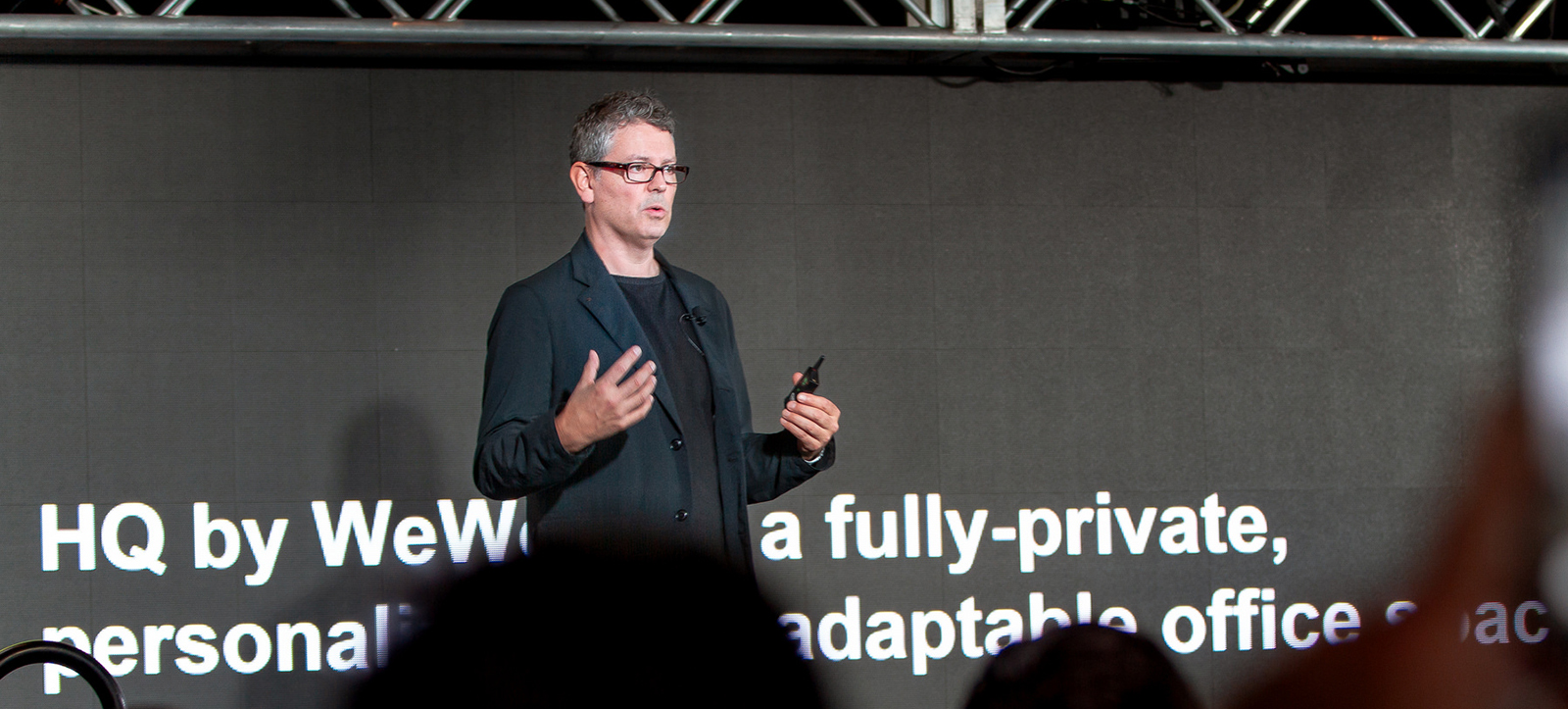When Mick McConnell first came on board as WeWork’s Head of Product Development in 2015, the co-working company had just shy of 50 locations.
By the end of last year, it boasted “400,000 members, in 400 locations in 99 cities, in 26 countries.”
This kind of growth has by no means unfolded organically for WeWork. It’s the result of a rigorous process of perfecting its rollout model and constantly evolving its development mindset. The insights and lessons learned over the past several years have paved the way for the expansion still to come.
“There were 47 WeWork locations to date when I joined, and that was done over a period of four years,” McConnell further explained. “Now, we open nearly 30 a month including new locations, new phases, and all product offerings.”
Now SVP, Head of Design Innovation and Standards, McConnell spoke at the RetailSpaces conference last year, offering valuable insights into WeWork’s spirit of endless experimentation. Here are our top three key takeaways on how the company continues to innovate and scale at the speed it does.
Utilizing a “Buildings Equal Data” Approach
Up until the point McConnell was hired, each WeWork location had been designed bespoke as a one-off project. Developing a system that could scale quickly meant devising a set of standards that could be applied across every project.
Big data insights were instrumental in the company’s attempt to streamline processes.
“We looked at a huge across-the-board swathe of every WeWork done to date to find out what the common threads were,” McConnell said. The fine-toothed analysis uncovered each location shared 92 percent of the same components. “We immediately landed on what worked, what didn’t work and focused on how to improve the core 92%. The remaining 8% becomes the regional or local customized design opportunity to make WeWork locations special or iconic.”
Further projects and a wealth of data gained from how members interact and utilize spaces have helped WeWork craft a “precise genome”. It’s a process the company continues to rely upon and hone to this day. For those in WeWork’s development team, “buildings equal data.”

Adopting New Technologies
Operating at the frontier of developments in technology has helped WeWork quickly adapt its unique design thumbprint to suit any given piece of real estate.
“We go into a space and we laser scan it. We just put the machine in the room, and it does it all on its own. The software automatically draws the floor plans, and then we just hone and refine that,” McConnell said.
The company also makes use of augmented reality to help visualize furniture and fixture placement, which, according to McConnell, “allows us to iterate really quickly on change.”
Exploring Possibilities Through Product Development
McConnell also stressed the value of narrowing design focus to constantly improve development at a granular level.
He used private phonebooths as an example. In the company’s early days, producing a single, bespoke unit was considerably expensive. Searching for cheaper, easier solutions eventually led to the development of a flat-pack unit with inbuilt power connections that cost 60% less. With significant investment in “product development,” McConnell said, companies can “explore the future.”
This type of thinking has also lent itself to overcoming other challenges. Recognizing a shift to modular design would help future-proof developments, WeWork started from the ground up, adapting individual components, like furniture, to devise an entirely new building prototype.
“Instead of desks mounted on the floor, we’re looking at desks mounted on the wall. This means we could have lighting in the desk, which means we no longer need to run wiring, and you end up with this snowball effect of change,” he said.
Since “everything’s coming up modular” at this new iteration, components can be manufactured off-site, which is likely to speed up the rate at which WeWork expands even further.

Posted by
Join us at WorkSpaces!
The retreat for corporate real estate and workplace innovators.
Oct 4-6, 2026 | Santa Barbara, CA




-3.png)
-3.png)


-2.png)

Comments